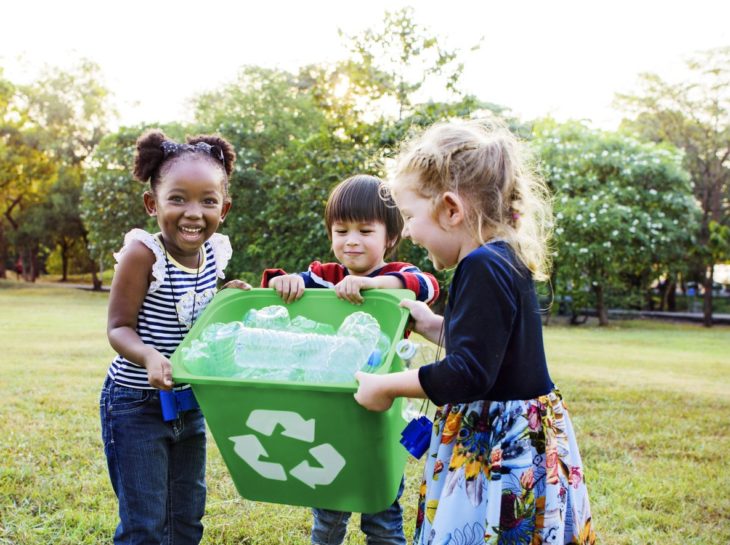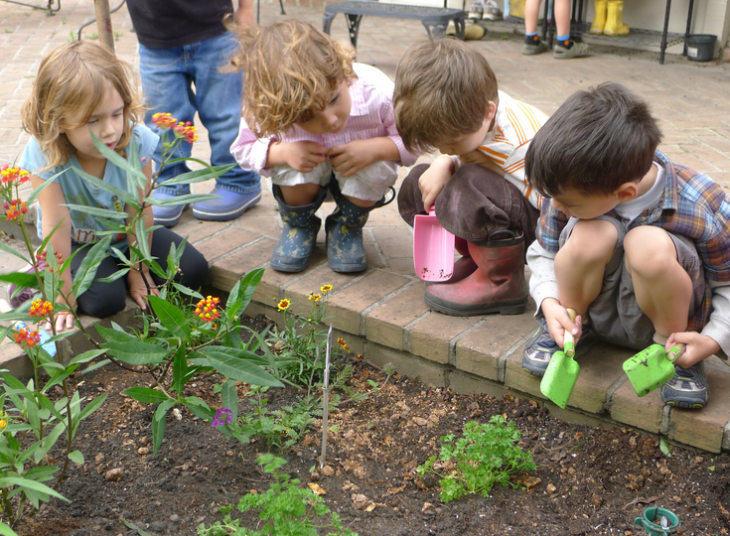Deck: Foster a love for greener lifestyles in your kids by making environmental friendliness an everyday practice.
Your family’s total annual amount of trash might not fit in a quart-sized pickle jar, and you may not yet have invested in solar energy. Nonetheless, you can still become a household devoted to going green. Shifting to eco-friendlier practices helps the planet and, much closer to home, your kids.
Whether you say no to plastic straws or dive into composting, the planet will thank you for instilling sustainability in your children. Plus, your kids will be poised to become the next generation of moms and dads who automatically illustrate environmental principles.
Contents
When Sustainability Becomes Second Nature

Source: Vox
Raising eco-friendly kids offers widespread advantages in the here and now, not simply down the road. Foremost, such kids take a greater interest in the journey of the food they eat and the products they use.
It’s much simpler for an elementary school student to turn down a plastic-wrapped vending-machine sweet when he or she understands why the choice is harmful to the environment. Rather than concentrate on wanting a treat, your child can be taught to weigh whether the reward is worth the cost.
Another benefit to raising a brood of budding conservationists relates to their overall health and well-being. For instance, walking or bicycling rather than driving is good exercise while reducing fossil fuels emissions, which improves air quality. That’s vital, considering air pollution is one of the leading causes of disease across the globe.
Finally, green kids learn self-discipline. It’s tough to move from an “I want” to an “I need” mindset. The sooner children discover the personal rewards that come from delayed gratification, the less deprived they’ll feel when they don’t get something immediately. Patiently watching a kitchen herb garden grow — and enjoying the fruits of their labors — instills a deeper mind-body-time connection in a youngster.
Want to promote these positive outcomes in your own home? Radical changes aren’t necessary. Start small by making common sense changes.
1. Make eco-friendly behavior its own reward.

Source: Eco Kids Planet
Many people have been taught that environmentalism must involve a high degree of self-deprivation. However, families who have “greened their act” find plenty of their new habits highly satisfying. One way to reward environmentally friendly choices is to plan sustainable practices as a family unit.
Try this: Take a day out of the week to rely on foot or bike pedal power instead of cars or public transportation. Ask your kids to pick a spot that’s nearby for a special outing. Then, use your body’s energy to get from point to point. Of course, it’s common for parents to give children household chores that come with a reward, like an allowance. In that case, simply add some “green” chores to their list, such as composting leftover veggies or sorting the recycling.
2. Catch yourself when you’re tempted to waste.

Source: Channel 3000
Expecting kids to do anything you’re unwilling to do yourself is a recipe for failure. For the next week, evaluate every action you take or item you buy. Is there a greener alternative that leads to less waste? If so, what would it take for you to implement it? As you move through your days, take note of what you decided not to do and the alternatives you pursued instead. Then, share your decisions with your children so they can learn from your thought process.
For instance, you can buy food products in bulk when possible, bringing your own containers or reusable bags to the store, in order to cut down on food packaging waste. Growing some of your own food at home can help with this, too. In addition, you can reduce your household trash by composting food waste. In fact, England recently took a big step in this direction, deciding to collect food waste separately from residents’ other refuse. Samantha Harding, from the environmental group CPRE, told the BBC that “separating food waste is essential — because decomposing food in general household bins reduces the value of other material sent for recycling.”
3. Kick pollutants out of your house.

Source: Viva NZ
Don’t allow dangerous chemicals and pollutants to take up residence in your home. Go through your cleaning supplies, and get rid of anything that contains formaldehyde or phosphate ingredients, as those chemicals have been linked to health problems including cancer, according to the American Cancer Society. When purchasing new furniture, flooring, paint, or window treatments, beware of strong smells. They’re a hallmark of volatile organic compounds (VOCs), which can cause health issues for you and your family members.
And because you can’t avoid all unwanted toxins, According to Projecteve.com, and Kelly Vlahakis-Hanks, president and CEO of Earth Friendly Products, maker of ECOS cleaning products, recommends adding greenery to help eliminate pollutants in your home. “Why invest in more expensive air filtering systems when you can enjoy the results and natural aesthetics of a spider plant or broadleaf lady palm?” she asks. Plants can filter out around 87 percent of airborne particles within 24 hours.
4. Circle back to the three Rs.

Source: Just Energy
Reduce. Reuse. Recycle. The three Rs aren’t novel ideas, but that doesn’t mean they aren’t good practices. At every stage in your journey to raise eco-friendlier children, make these three words your basic mantra.
Celebratory events and holidays are prime occasions to consider ways to incorporate these principles. You may want to nix wrapping paper in favor of reusable bags, or you can turn kids’ art projects into beautiful wrappers that can eventually be recycled. Give everything that comes into your house the opportunity for a second life. Your kids may have clever ways to reuse even the most mundane items. Encourage them to get creative.
Children are curious and eager. Arouse their imagination and empathy for the Earth by running a more eco-sensitive household. They’ll be better for your efforts — and so will the world they’ll someday lead.
